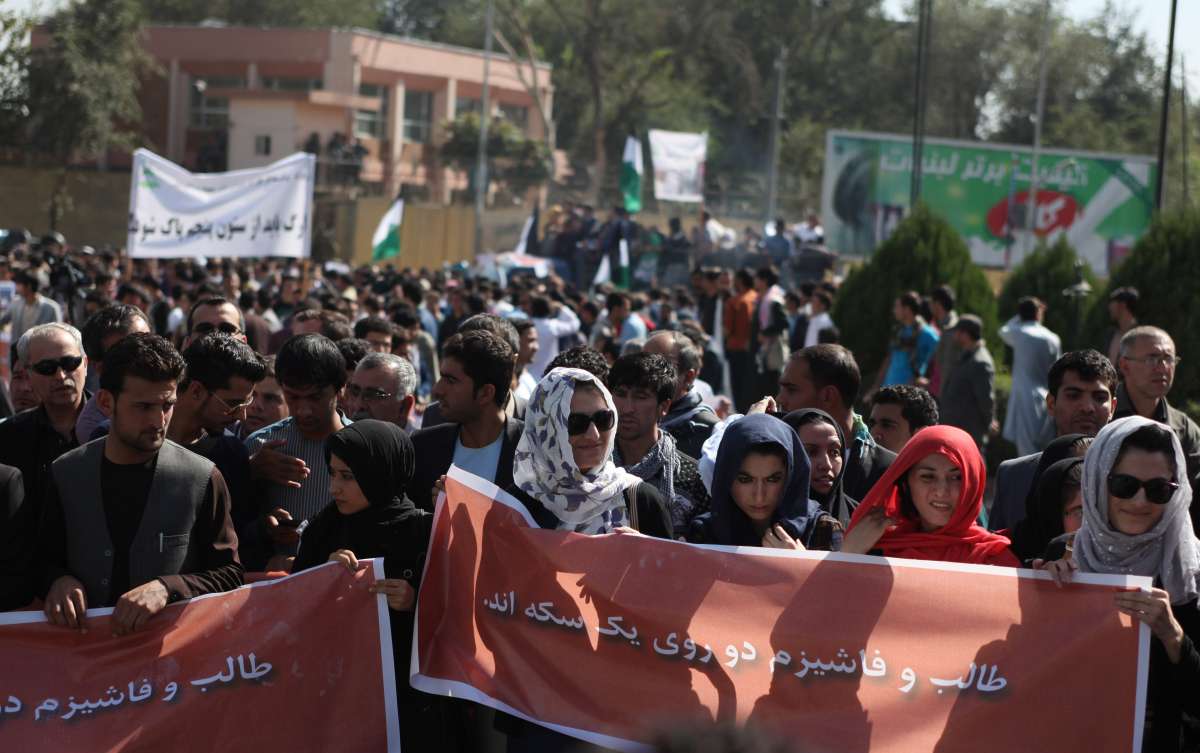The so-called law imposes dress codes, notably ordering women to cover their bodies and faces in public….reports Asian Lite News
The European Union on Tuesday said that it is “appalled” by the recent decree issued by the Taliban which imposes severe restrictions on the life of Afghans, especially women.
The Taliban-led Afghan government announced last week the ratification of ‘Law on the Promotion of Virtue and the Prevention of Vice’, with 35 articles detailing significant restrictions on the Afghan population with arbitrary and potentially severe enforcement mechanisms.
The so-called law imposes dress codes, notably ordering women to cover their bodies and faces in public. The decree also imposes that the voices of women must not be heard in public, which effectively deprives Afghan women of their fundamental right to freedom of expression.
The statement of the High Representative released on behalf of the EU stated that the decree further extends the power of the Afghan ministry beyond an advisory role as it is now being given a clear mandate to enforce the decree.
“This, together with the restrictions imposed, punishable under Taliban law, violates legal obligations and Treaties to which Afghanistan is a State Party, including by undermining Afghan people’s right to due process,” said EU Foreign Policy chief Josep Borrell.
The EU maintained that it continues to stand by the women and girls of Afghanistan, and by all those in Afghanistan “threatened” by the Taliban.
“This latest decision is another serious blow undermining the rights of Afghan women and girls, which we cannot tolerate. We urge the Taliban to put an end to these systematic and systemic abuses against Afghan women and girls, which may amount to gender persecution, which is a crime against humanity under the Rome Statute of the International Criminal Court, to which Afghanistan is a State Party,” Borrell added.
The European Union also made it clear that the decree has created yet another “self-imposed obstacle” to normalised relations and recognition by the international community, to which the Taliban publicly aspire.
“Such possible recognition, as stated in the UN’s independent assessment, of which the UNSC Resolution 2721 (2023) took positive note, would require the Taliban to fully respect both their obligations towards the citizens of Afghanistan and Afghanistan’s international obligations,” the EU statement mentioned.
On Sunday, the United Nations Assistance Mission in Afghanistan (UNAMA) had also slammed the promulgation of morality law by Afghanistan’s de facto authorities.
“It is a distressing vision for Afghanistan’s future, where moral inspectors have discretionary powers to threaten and detain anyone based on broad and sometimes vague lists of infractions,” said Roza Otunbayeva, the Special Representative of the Secretary-General and head of UNAMA.
“It extends the already intolerable restrictions on the rights of Afghan women and girls, with even the sound of a female voice outside the home apparently deemed a moral violation,” she said.
UNAMA said that it is studying the newly-ratified law and its implications for the Afghan people, as well as its potential impact on United Nations and other vital humanitarian assistance for the country, and is seeking clarification from the de facto authorities on a number of articles and on plans for enforcement.

Leave a Reply